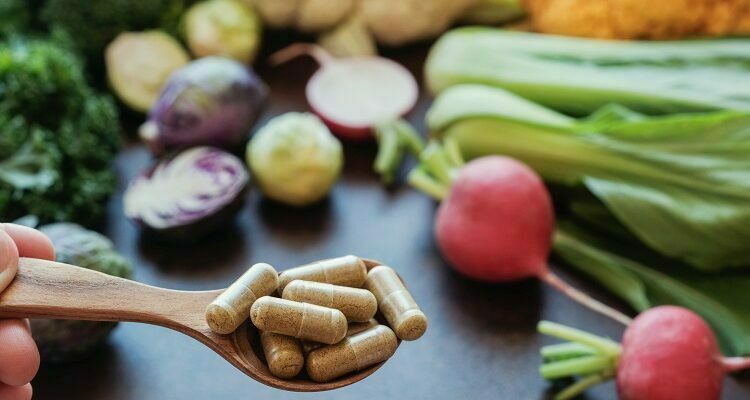Unless specifically prescribed for you by a medical or another health-care professional, a wide use of nutritional supplements is not recommended. With the Sirtfood Diet you would be ingesting a vast and synergistic array of natural-plant compounds that provide the benefits. You cannot replicate these benefits with supplements and in fact, some in high doses may interfere with the beneficial effects of the Sirtfoods.
But are there any nutrients that fall short in the Sirtfood Diet that may need topping up? Whenever possible it is more advantageous to get the nutrients you need from eating a balanced diet rich in Sirtfoods, rather than in pill form. However,it is very difficult to get every single nutrient you need in optimum amounts, no matter how hard you try. The two nutrients you are likely to fall short of are Vitamin D (through the winter months) and selenium. Vegans will also have special nutritional considerations and these will be the subject of a later article.
Selenium-Supplement
- What is it? Selenium is a trace mineral found in plants as well as some meat and seafood. The amount of selenium in foods is affected by how much selenium was in the soil they were grown in and how much the food has been processed.
- Why do I need it? Selenium is essential for ridding the body of free radicals linked to premature ageing and the development of chronic disease. In fact, recent research suggests that selenium deficiency may be a major factor in the rise of heart disease and cancer over the last few decades. Although we only need a small amount of selenium to be healthy, deficiencies in it are becoming more common, due to poor soil conditions and increased reliance on processed foods.
- How do I get it? Good sources of selenium are brazil nuts, cashews, peanuts, eggs, alfalfa, mackerel, tuna, garlic, oysters, wholegrain cereals and yeast.
- The best way to supplement is in the form of selenium yeast and 50 to 100 mcg a day is recommended.
A range of selenium products is available. Information is shown here at the end of the page.
Vitamin D-Supplement
Vitamin D is a fat soluble vitamin that has a key role in helping calcium be absorbed in the gastrointestinal tract to support the growth and maintenance of our bones, as well as controlling calcium levels in the blood.
The signs for low vitamin D levels include low mood, feelings of fatigue, joint and muscle pain and muscle weakness.
Low vitamin D levels has also been linked to a number of other health issues including neurological dysfunction, heart disease, diabetes and some types of cancers although research into these associated disease states is in its early stages.
The biggest issue with low levels of vitamin D over time is that it puts our bone health at considerable risk. Low vitamin D results in high bone turnover, reduced bone density and an increased risk of fractures over time, especially in older people.While we can get vitamin D from a few specific foods including egg yolks, oily fish including sardines and salmon, fortified milks and some types of mushrooms, the amounts of vitamin D we get from food is relatively small, estimated at just 5-10 per cent of the total amount we require.
For this reason, sunshine is the primary source of vitamin D for most people. Vitamin D is produced in the body when our skin cells are exposed to ultraviolet B (UVB) light that we get from the sun.
And you don’t need to sit in the sun for hours to get the amounts of vitamin D you need.
The average person will need between 5-10 minutes of sunlight exposure in Summer, versus up to 30 minutes in Winter, while darker skin types may require more. While we often expose our arms, larger parts of our body such as our chest, tummy or back will benefit from sun exposure thanks to their larger surface areas.
You cannot diagnose your own vitamin D deficiency. Rather you will need a blood test from your GP who will determine what your vitamin D levels are. Low levels of vitamin D can easily be fixed via an oral supplements which is best taken at night. It is important to know that there are two types of vitamin D, Vitamin D3 (cholecalciferol) is produced by the human body in response to sunlight compared to vitamin D2 (ergocalciferol) which is not produced in the human body, but is created by exposing certain plant-derived materials to ultraviolet light and is not as well absorbed in the body as Vitamin D3. So make sure you purchase Vitamin D3 if you do need a supplement.
Vitamin D deficiency is therefore a major concern, on a global scale, with research suggesting that nearly half the world’s population may have less of this nutrient than they need.
Safe sun during the summer and a daily supplement of 1,000IU in the winter months will provide your vitamin needs.
See product availability information below.


Comments